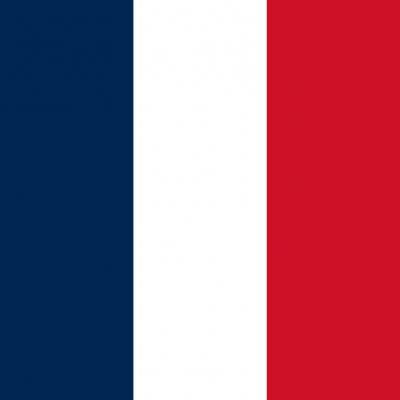Bastille Day is the common name given in English-speaking countries to the national day of France, which is celebrated on 14 July each year. In French, it is formally called Fte nationale franaise (French: [ft nasjnal]; "French National Celebration"), and legally le 14 juillet (French: [l katz() ij]; "the 14th of July").The French National Day is the anniversary of the Storming of the Bastille on 14 July 1789, a major event of the French Revolution, as well as the Fte de la Fdration that celebrated the unity of the French people on 14 July 1790. Celebrations are held throughout France. One that has been reported as "the oldest and largest military parade in Europe" is held on 14 July on the Champs-lyses in Paris in front of the President of the Republic, along with other French officials and foreign guests.
The president of France, officially the President of the French Republic (French: Président de la République française), is the head of state of France, head of the executive, as well as the commander-in-chief of the French Armed Forces. As the presidency is the supreme magistracy of the country, the officeholder is the holder of the highest office in France. The powers, functions and duties of prior presidential offices, in addition to their relation with the prime minister and Government of France, have over time differed with the various constitutional documents since the Second Republic. The president of the French Republic is the ex officio co-prince of Andorra, grand master of the Legion of Honour and of the National Order of Merit. The officeholder is also honorary proto-canon of the Archbasilica of Saint John Lateran in Rome, although some have rejected the title in the past. The current president of the French Republic is Emmanuel Macron, who succeeded François Hollande on 14 May 2017.

2002Jul, 14
French President Jacques Chirac escapes an assassination attempt unscathed during Bastille Day celebrations.
Choose Another Date
Events on 2002
- 16Jan
Osama bin Laden
The UN Security Council unanimously establishes an arms embargo and the freezing of assets of Osama bin Laden, al-Qaeda, and the remaining members of the Taliban. - 4Apr
Angolan Civil War
The Angolan government and UNITA rebels sign a peace treaty ending the Angolan Civil War. - 14Apr
Hugo Chávez
Venezuelan President Hugo Chávez returns to office two days after being ousted and arrested by the country's military. - 12May
Fidel Castro
Former US President Jimmy Carter arrives in Cuba for a five-day visit with Fidel Castro, becoming the first President of the United States, in or out of office, to visit the island since Castro's 1959 revolution. - 20Aug
Saddam Hussein
A group of Iraqis opposed to the regime of Saddam Hussein take over the Iraqi Embassy in Berlin, Germany for five hours before releasing their hostages and surrendering.

 English
English  español
español  français
français  português
português  русский
русский  العربية
العربية  简体中文
简体中文 